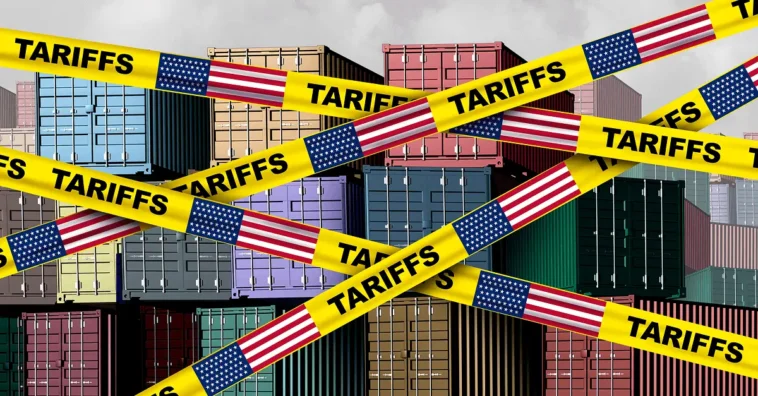Canada’s Prime Minister, Mark Carney, and the liberal party under his leadership have marked a triumphant win in the recent elections of the nation’s Parliament. Observers in Washington should interpret this win as a caution against excessive and uninformed diplomacy. The hasty claim made by U.S. President Donald Trump, intending to compromise Canada’s sovereignty by proposing it as a potential ’51st state’, clearly triggered a patriotic response amongst the Canadian population. This reaction ultimately led to a surge in support for Carney, viewed as a stark rejection of the American President’s ambitious colonial intentions.
Carney was empowered with an authoritative command on Tuesday to handle the trade conflicts incited by Trump’s imposing high tariffs on Canadian goods. This increase in tariffs was Trump’s attempt to negotiate a more favorable trade ‘deal’ between both nations. But the consequences weren’t limited to just monetary impacts; the warmth traditionally associated with the Canadian people seems to have been disturbed as Americans receive unusually negative receptions at sports events in Canada, and travel plans to the U.S are being canceled.
The growing fear amongst the earnest and respected citizens, discussing preparation strategies to safeguard their nation against a possible U.S invasion, underscored the gravity of the situation. Carney, in his victory speech, reflected these sentiments, cautioning, ‘America has set its sights on our land, our resources, our water, and indeed, our nation. President Trump is attempting to subdue and dominate us.’
Carney’s economic acumen is notable, having guided Canada’s monetary policy in his tenure as the Bank of Canada’s governor during the 2008 financial crisis. He later carried out a similar responsibility as the governor of the Bank of England, contributing significantly to the central bank’s response to Brexit. The showdown between Carney’s economic shrewdness against Trump’s spontaneous and undiscerning actions is, therefore, concerning.
Trump’s economically aggressive strategies were felt on home ground in New York last month. Ontario’s governing body proposed a surcharge on electricity supplied to three U.S. states — New York, Michigan, and Minnesota. Trump’s countermove was a threat to further increase the tariffs on imported goods from Canada.
However, Ontario Premier Doug Ford and Commerce Secretary Howard Lutnick reported having a ‘productive conversation’, indicating room for further discussions and potential compromise. The energy systems of the U.S. and Canada are interwoven with a vast network of 31 power lines straddling across their shared border, thus requiring intricate agreements concerning distribution and associated costs.
New York has always been a significant importer of materials like stones, mineral fuels, and aluminum from Ontario. However, the harmonious trade relationship between the two regions had been disrupted by Trump’s aggressive moves.
Before the diplomatic and economic tumult caused by Trump, Pierre Poilievre, the leader of the Conservative Party who campaigned on issues related to crime and tax, endorsed quite explicitly by Trump and carrying a distinct ‘Make America Great Again’ vibe, was expected to secure the position of the prime minister. There were also strong indications supporting a scenario where he would command majority seats.
Contrary to expectations, not only was Poilievre unsuccessful in displacing Carney and the Liberals from the government, but he also failed to retain the parliamentary seat he had occupied for the past two decades.
It must be pointed out that Carney’s approach towards the tariff issue showcases maturity and level-headedness, acknowledging the serious implications an escalation could have on his country. Moreover, he presents his stance without any unruly show of frustration or defiance, displaying an understanding of the critical importance of stable, international diplomacy.
Carney’s rise to a position of influence, his ability to maintain a balanced perspective amidst ongoing conflicts, might help guide U.S. policy towards a maintainable resolution. This situation reiterates the importance and potential impact of balanced and informed leadership in addressing international disputes.

